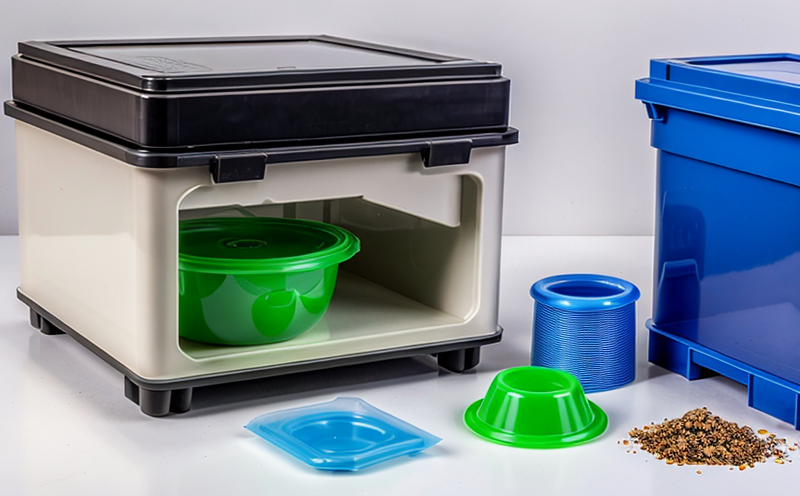ASTM F2825 Package Integrity Testing under Pressure
The ASTM F2825 package integrity testing method is a critical process used to ensure that packaging made from plastics and other materials can withstand the pressures encountered during shipping, handling, and storage. This test assesses the structural integrity of packaging by subjecting it to high-pressure conditions in a controlled environment. The primary objective is to identify potential flaws or weaknesses that could lead to product contamination or spoilage.
The ASTM F2825 standard is widely recognized for its accuracy and reliability, making it an essential tool for manufacturers, quality managers, compliance officers, and R&D engineers. By adhering to this standard, companies can ensure their packaging meets the necessary safety and performance requirements specified by regulatory bodies such as the FDA (Food and Drug Administration) and international standards like ISO.
The testing process involves filling a sealed package with air or another inert gas under controlled pressure conditions, typically ranging from 10 psi to 50 psi. The pressure is then maintained for a specified duration, after which the package is visually inspected for any signs of leakage or damage. This method simulates real-world conditions where packages are subjected to varying pressures during transport.
ASTM F2825 is particularly useful in ensuring that packaging materials used for food, pharmaceuticals, and other sensitive products maintain their integrity throughout distribution channels. By conducting this test, companies can reduce the risk of contamination, ensure product safety, and comply with industry best practices and regulatory requirements.
The ASTM F2825 standard specifies detailed procedures for testing package integrity under pressure, including specimen preparation, equipment calibration, and data interpretation. Compliance with these guidelines ensures accurate and consistent results across different laboratories and test facilities.
Applied Standards
| Standard | Description |
|---|---|
| ASTM F2825-17 | This standard provides a detailed procedure for the testing of package integrity under pressure. It outlines the requirements for specimen preparation, equipment calibration, and data interpretation. |
| ISO 9001:2015 | The International Organization for Standardization's quality management system standard ensures that laboratories meet specific criteria for quality assurance and continuous improvement. |
| EN ISO/IEC 17025:2017 | This accreditation standard sets out the requirements for competence in testing and calibration laboratories, ensuring they operate at a high level of proficiency. |
Benefits
- Ensures package integrity under pressure conditions to prevent product contamination or spoilage.
- Reduces the risk of regulatory non-compliance and associated penalties.
- Enhances brand reputation by ensuring consistent product quality across all distribution channels.
- Saves costs related to rework, recalls, and customer dissatisfaction.
- Aids in the design and development of robust packaging solutions that meet market demands.
Customer Impact and Satisfaction
- Increases consumer trust through consistent product quality assurance.
- Facilitates smoother supply chain operations by minimizing package-related issues.
- Promotes long-term relationships with suppliers and customers due to reliable performance.
- Aids in meeting stringent industry standards and regulatory requirements.





